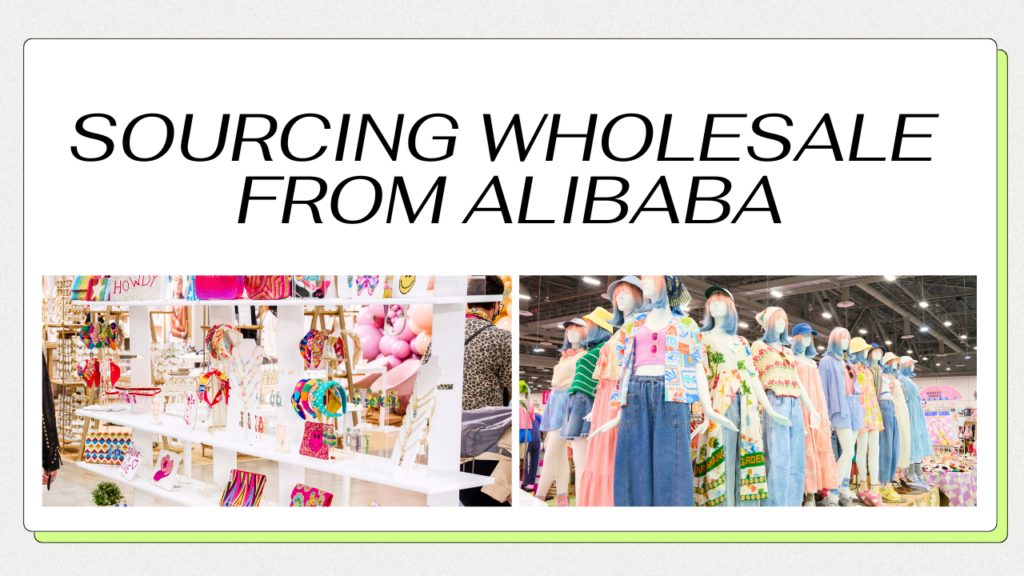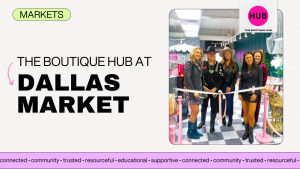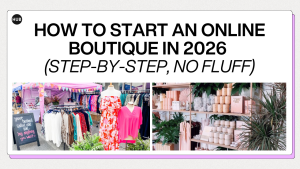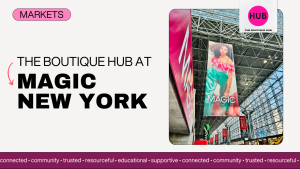As a small business owner, finding the right wholesale inventory can make or break your boutique’s success. While there are plenty of options for sourcing inventory, Alibaba is one of the most well-known platforms for buying wholesale directly from manufacturers. But is it the right choice for your business?
Before diving in, it’s important to understand the pros and cons of using Alibaba so you can make an informed decision. That’s why we’ve put together a free guide that breaks it all down for you! Download the guide here.
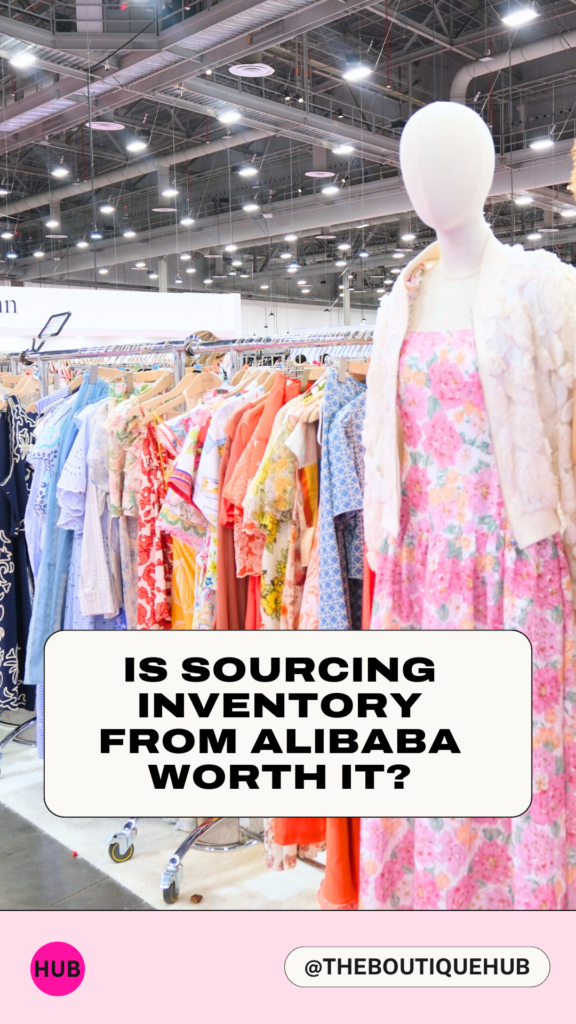
What is Alibaba?
Alibaba is a massive online marketplace that connects businesses with manufacturers and suppliers worldwide. Unlike traditional wholesale marketplaces, Alibaba allows you to source products directly from factories, often at lower prices. However, working with international suppliers comes with unique challenges, including quality control, shipping logistics, and potential scams.
Pros of Sourcing Inventory from Alibaba
- Lower Prices & Bulk Discounts – Since you’re buying directly from manufacturers, prices are often much lower than domestic wholesale suppliers. Many suppliers offer bulk discounts, making it easier to improve your margins.
- Endless Product Variety – From trendy apparel to accessories and private-label beauty products, Alibaba offers an extensive range of inventory options for boutiques of all sizes.
- Supplier Negotiation – Many suppliers are open to negotiations, meaning you can often work out better pricing or terms depending on your order size and long-term partnership.
Cons of Sourcing Inventory from Alibaba
- Longer Shipping Times – Since most Alibaba suppliers are based overseas, expect longer shipping times, sometimes taking weeks or even months for products to arrive.
- Quality Control Risks – Unlike domestic wholesale suppliers, you won’t always get to see products in person before purchasing. Requesting samples before placing bulk orders is crucial.
- Scams & Fraud Risks – While Alibaba has made improvements in supplier verification, scams and counterfeit goods still exist. It’s essential to vet suppliers carefully and use secure payment methods.
- Customs & Import Fees – If you’re ordering internationally, be prepared for additional costs like customs duties, tariffs, and shipping fees that can add up quickly.
Best Practices for Buying from Alibaba
- Research Suppliers Thoroughly – Look for “Verified” or “Gold” suppliers with good reviews and long-standing reputations.
- Request Samples First – Before making a large purchase, always order a sample to check quality and confirm product details.
- Negotiate Terms – Don’t be afraid to negotiate pricing, minimum order quantities (MOQs), and shipping terms.
- Use Secure Payment Methods – Stick to Alibaba’s Trade Assurance or PayPal to protect your purchase.
- Plan for Longer Lead Times – Make sure to factor in extended shipping times when planning seasonal inventory.
Is Alibaba Right for Your Boutique?
While Alibaba offers great pricing and product variety, it’s not the right fit for every boutique. If you want a more hands-on approach with your suppliers, faster shipping, and lower order minimums, you might be better off working with domestic wholesale platforms like Hubventory.
Before making any big inventory decisions, grab our free guide on the Pros & Cons of Using Alibaba to ensure you’re making the best choice for your business. Download it here and start sourcing smarter today!
Recent Posts:
- Where Do Boutiques Get Their Clothes? A Beginner’s Guide to Wholesale Buying
 Where do boutiques get their clothes? From wholesale vendors, trade shows, and online buying platforms built specifically for retailers. This beginner’s guide breaks down exactly how wholesale works, where to find vendors, and how to start buying inventory the smart way.
Where do boutiques get their clothes? From wholesale vendors, trade shows, and online buying platforms built specifically for retailers. This beginner’s guide breaks down exactly how wholesale works, where to find vendors, and how to start buying inventory the smart way. - The Boutique Hub at the Dallas March Apparel Market
 It’s almost Dallas Market time and we are counting down the days. The Hub team is heading back to market and we cannot wait to see you in person. We know those days fly by fast, so we’ve rounded up our full schedule to make it easy for you to plan ahead, swing by, and connect with us while you’re there.
It’s almost Dallas Market time and we are counting down the days. The Hub team is heading back to market and we cannot wait to see you in person. We know those days fly by fast, so we’ve rounded up our full schedule to make it easy for you to plan ahead, swing by, and connect with us while you’re there. - Feeling Behind Already? Why February Is the Perfect Time to Reset Your Boutique Plans
 Feeling behind on your boutique goals already? February is actually the smartest time to reset your plans. With real sales data in hand and spring ahead, this is your chance to refine—not restart—your strategy. Here’s how to create a focused 90-day boutique business reset and build momentum before Q2.
Feeling behind on your boutique goals already? February is actually the smartest time to reset your plans. With real sales data in hand and spring ahead, this is your chance to refine—not restart—your strategy. Here’s how to create a focused 90-day boutique business reset and build momentum before Q2. - How to Start an Online Boutique in 2026 (Step-by-Step, No Fluff)
 Starting an online boutique in 2026 isn’t about having the cutest Instagram grid or chasing every trend you see on TikTok. It’s about building a real business — one that makes money, doesn’t burn you out, and actually grows. If you’ve been stuck Googling how to start an online boutique and feeling overwhelmed by conflicting advice, you’re in the right place. This guide walks you through exactly what matters, step by step — no fluff, no guesswork, no outdated advice.
Starting an online boutique in 2026 isn’t about having the cutest Instagram grid or chasing every trend you see on TikTok. It’s about building a real business — one that makes money, doesn’t burn you out, and actually grows. If you’ve been stuck Googling how to start an online boutique and feeling overwhelmed by conflicting advice, you’re in the right place. This guide walks you through exactly what matters, step by step — no fluff, no guesswork, no outdated advice. - The Boutique Hub at MAGIC New York
 The Hub Team is heading to MAGIC New York again and we couldn’t be more excited! With over 320+ brands, you are sure to find more MAGIC in a (New York) minute!
The Hub Team is heading to MAGIC New York again and we couldn’t be more excited! With over 320+ brands, you are sure to find more MAGIC in a (New York) minute!
